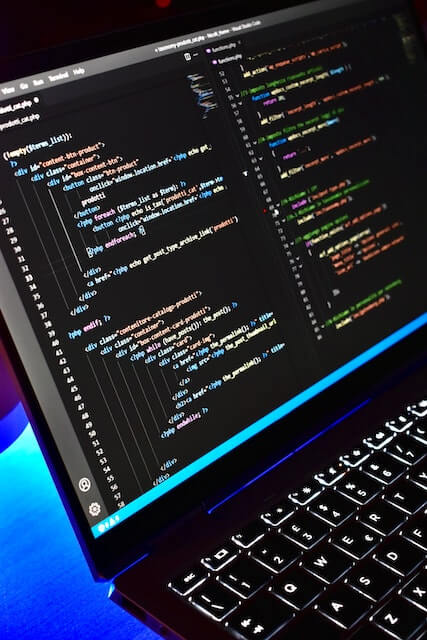
How to Manage Your own Dedicated Development Team

In most cases, a dedicated development team is a goldmine when it comes to scaling your internal unit with skilled software engineers. On the other hand, managing such resources can be challenging, given the constraints of distributed communication. If you’ve wound up here, you probably are looking for advice and the best practices when it comes to managing your dedicated development team from afar. As a company that’s been building dedicated teams for development in Ukraine, we want to share bits of advice that help our clients run their own dedicated development teams, harnessing all the benefits of offshore / nearshore software development.
Before we begin, it’s worth mentioning that every organization has its own practices and philosophy that define how they build relationships with its dedicated development teams. Some companies, for example, want their distributed teams to have more autonomy, while others prefer to check in with their team members as frequently as possible. That’s why it’s hard to find a one-size-fits-all approach for managing a dedicated software development team. Instead of doing that we prefer to share ways that can help you establish and improve your approach to working with dedicated software development teams. Let’s dive in!
Clear expectations for your dedicated development team
It’s impossible to stay dedicated to something you don’t understand. Not only can opaque expectations send your dedicated development team into the depth of confusion, but you also risk losing control over your project. Thus, be sure you communicate your expectations and get them across explicitly and clearly. Here’s how you can do it:
Make it official. Before you communicate your expectations, it’s a good idea to write them down, so you can review the document later and make amendments (if any) along the way. Below are the examples of what you may want to expect from your dedicated software development team:
- Meet the timelines of deliverables;
- Come up with solutions how to best release a feature;
- Attend daily syncs;
- Report on daily progress at the end of the workday;
- Inform the team in case of any risks of deadline breach.
Explain. Not only should you go over your expectations with your dedicated development team members, but you also should explain why it’s essential that they meet them. For example, you may want to expect daily reports from the dedicated software development team by a certain hour so that your local unit can move forward based on these achievements. On top of staying on the same page, this helps you create the connection between your squads. In their turn, developers will feel that they are an essential cog in your company, which always goes a long way in making online collaboration effective.
Communicate. Schedule a meeting with the dedicated development team to go over your expectations. Then, discuss your expectations with each team member individually during a one-on-one meeting. During the meetings, ask everyone to raise questions and address them.
In addition to communication expectations, you should share your project scope, given that this document is the foothold that allows your dedicated software development team to understand your tasks, goals, and time frames, providing a clear plan to follow. Go over each point with your dedicated development team and specify each team member’s role in the project.
Build trust
Openness and honesty can play a significant role in the project outcome. Your project only wins when developers aren’t afraid to express constructive criticism. The best way to build trust with your dedicated development team is to be honest about your concerns, stay open for feedback, and celebrate achievements.
In many cultures, it’s taboo to put the solutions of the upper management under scrutiny, whereas professionals are typically encouraged to share their opinion in Western cultures. When it comes to Ukrainian dedicated software development teams, you can be sure you’ll hear an honest opinion, given the openness of Ukrainians their proximity to European cultures. Still, it’s a good idea to encourage team members to share their thoughts and show that it’s a safe environment to voice concerns, ideas, and such.
Schedule
One of the biggest challenges of distributed collaboration is staying in sync. When it comes to Ukrainian dedicated development teams, the key is to find an ideal time of day for communication. That’s especially common for tech leaders who run their dedicated development teams overseas, given that there are fewer overlapping hours available for communication.
You may want your dedicated software development team to have more common working hours with your home-based squad, but it’s also important to ensure that your unit has enough time to rest and maintain its social life.
It’s impossible to keep a healthy work-life balance working at night, as it will make developers feel perpetually tired and eventually unhappy with the job.
On the other hand, working regular hours, by the time your staff arrives at the office, your dedicated development team located in Ukraine will have progress to report. If there’s a need, developers can shift the start of the workday a few hours ahead to have more overlapping hours with you and will stay at the office late nights during crunch time, as they root for your project success.
READ ALSO: Staff Augmentation Companies in Ukraine: Cultural Aspects
Communicate
Communication is the fuel of distributed and hybrid collaborations. Unlike an office environment, where you can hear conversations, gauge the stress level of your staff or walk up for an informal chat to see how a team member feels, virtual communication doesn’t assume a shared space to connect. But instead, you can recreate it with your dedicated development team virtually. Here’s how you can do it:
- Choose the right tools
Virtual communication tools are abundant, but you need to make your choice carefully not to wind up with a bunch of tools no one knows when and how to use. Having too many tools at their disposal, your squad may hit a wall over a simple question, such as whether they should use Zoom or Teams to call someone. Thus, be sure to create a guideline for your virtual communication toolbox so your dedicated development team doesn’t get confused.
- Overcommunicate
In a distributed environment, there’s no such thing as too much communication. So, don’t be afraid to sound like a broken record – reiterate essential things, ask for confirmation, and make sure your message is received the way you intended it on the other end.
- Be detailed
A good rule to follow in your written communication is to be as detailed as possible to avoid confusion and misunderstandings. Quick messages in Discord or Slack are fine, but they aren’t suited for explaining complex things. It’s best to go over such essentials via email or video calls.
- One-on-one communication
Don’t put individual communication to the backseat just because your dedicated development team works virtually. It’s equally important to keep your lines open in a virtual environment as it is within the office walls. Thus, you should stay approachable for one-on-one communication, using the tools to exchange messages outside the team chats, such as WhatsApp, Discord, Skype, etc.
Feedback
A well-established culture that encourages feedback can help you build the right kind of relationship between your dedicated development team and your local tech squad. Face-to-face communication is often the best avenue for feedback as it minimizes the misinterpretation that can occur while relying on text-based communication.
A good rule to follow is to be detailed in your feedback. Even if you want a developer to rewrite code fast, it’s best to find the time to explain why their solution did not live up to the standards you expect. Make it a meaningful conversation where you go over the drawbacks and benefits of their solution and ask their opinion and concerns. This way, you promote a culture of trust and create a bond between you and your dedicated development team.
Reporting
Reporting and control go hand in hand. If you want your dedicated development team to stay productive, you’d be well advised to establish a reporting system to enable developers to provide daily/weekly reports on their accomplishments. This way, you’ll be in the know as to how your project is coming along. Essentially, ensure your dedicated development team has a structure to commit to in their reports to avoid convoluted or undetailed reports. Based on those reports, you can see and correct the direction in which your dedicated software development team goes, helping them get closer to meeting your goals and expectations. It’s a good idea to provide a report on your side as well, as it promotes trust and ongoing communication.
READ ALSO: Key Elements of Company Culture in Ukraine
Support
In our model at nCube, we build your own dedicated development team, composed in a custom way and in line with your developer needs. The support and daily well-being of your staff rest on our shoulders as we take care of their day-to-day comfort, team-building events, and HR guidance. We always go the extra mile to help you interweave developers into your home-based unit, establish good rapport and communication between you and your dedicated development team. Contact us to learn more about hiring a dedicated team with us.
Recommended articles


